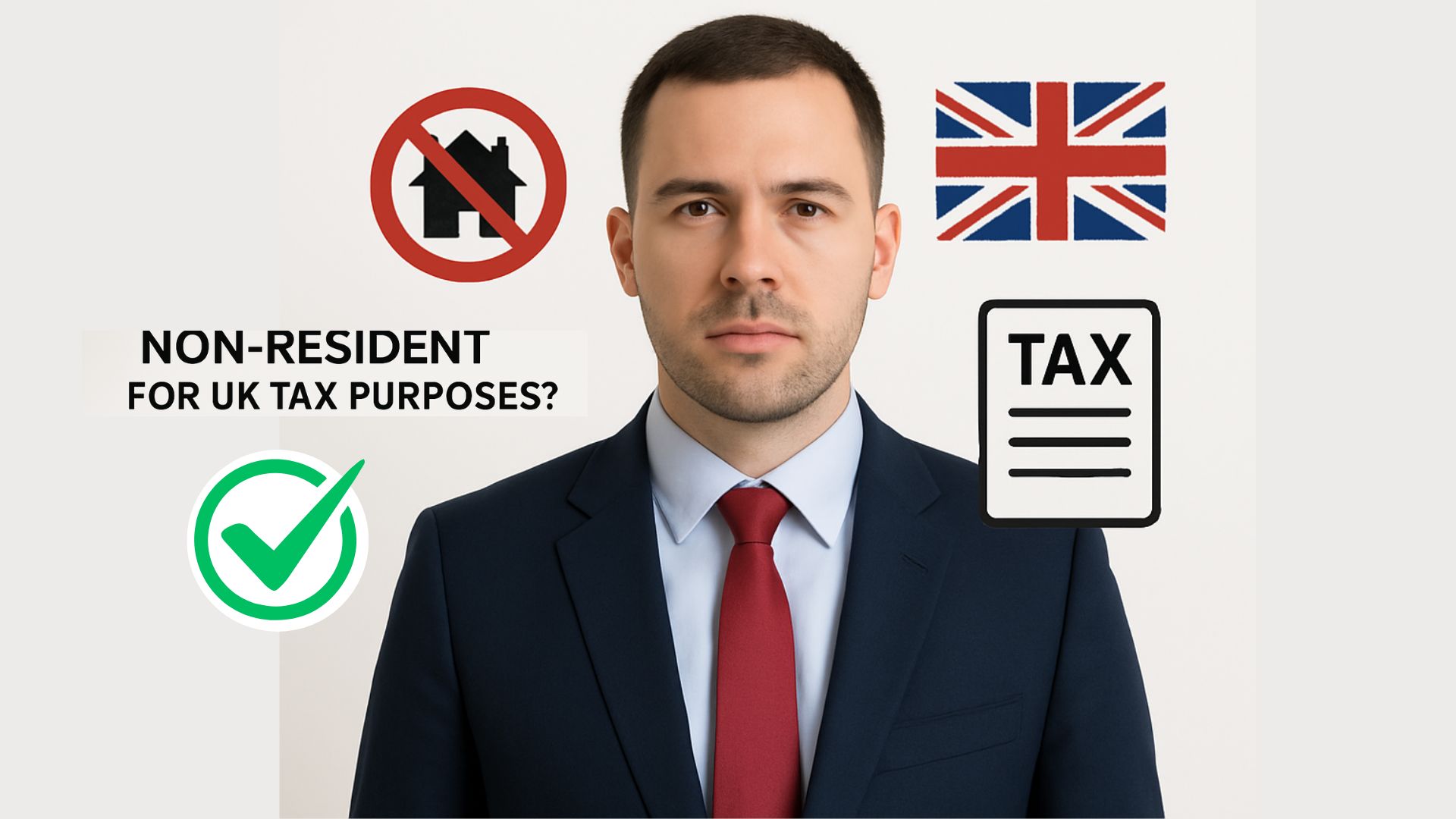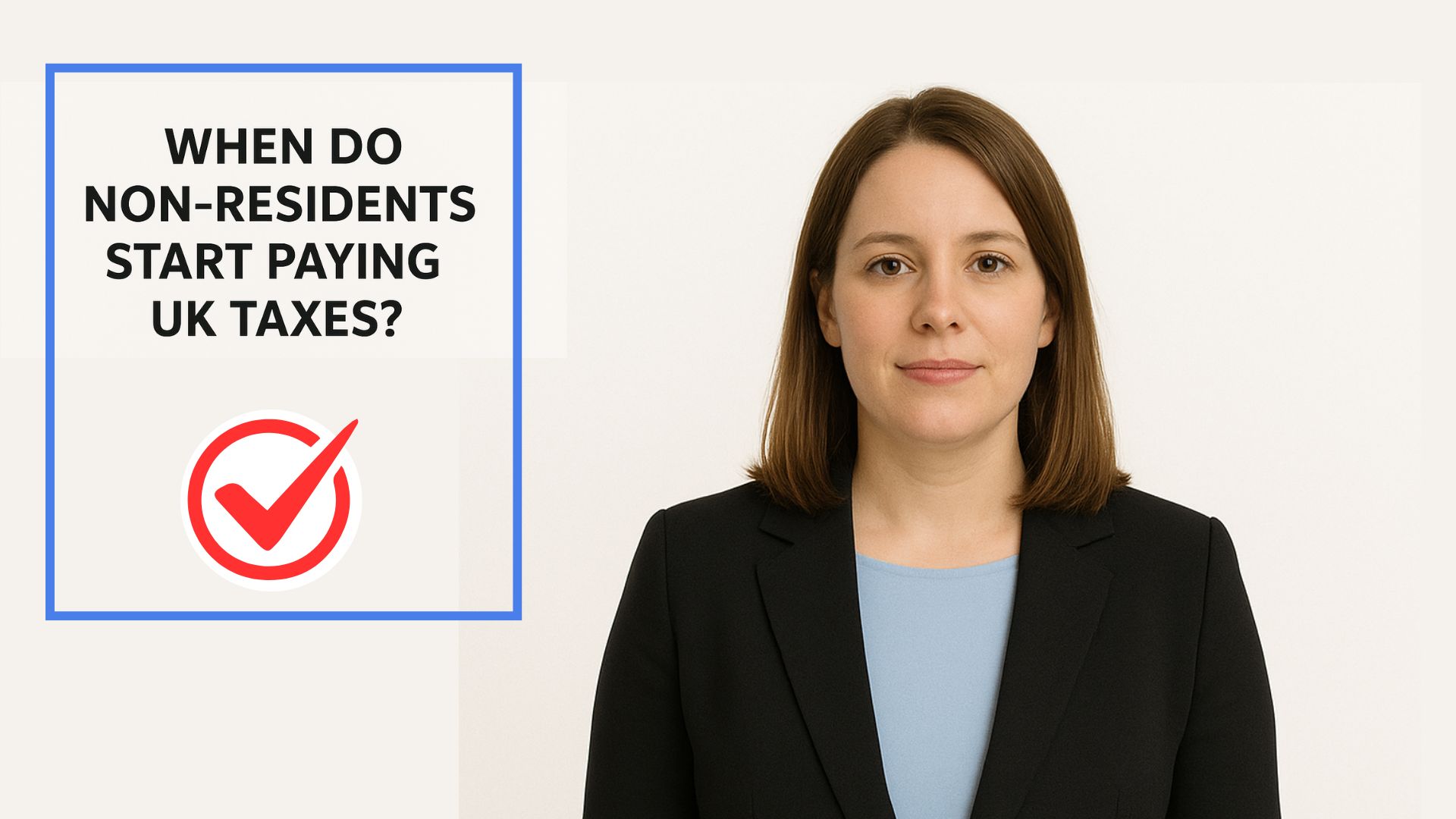Last Updated on 2 weeks by Komolafe Bamidele
If you’re a non-resident considering setting up a limited company in the UK, or if you’ve already established one and are unsure about your tax obligations, this comprehensive UK Ltd Company Tax for Non-Residents guide will walk you through everything you need to know about UK tax requirements for non-residents.
The UK’s business-friendly environment makes it an attractive location for international entrepreneurs.
However, navigating the complex tax code can be challenging, especially when you’re not physically present in the country.
This article will clarify when and how non-residents need to start paying UK taxes on their limited companies.
If you’re looking to set up your UK company within 24 to 48 hours let First Formation do everything for you,
guess what I have partnered with them to get you a Discount of up to 33% OFF the Prestige package, 45% OFF All Inclusive, NEW PRICE for Non-Resident package (Got the VAT, everything you might need — Very Important).
What Defines a Non-Resident for UK Tax Purposes?
Before delving into tax obligations, it’s essential to understand what constitutes a “non-resident” in the eyes of HMRC (Her Majesty’s Revenue and Customs).
A non-resident for UK tax purposes is someone who does not live permanently in the UK but earns taxable UK income.
This includes many UK expats who may have income from UK rental property and other UK sources. Importantly, non-residents only pay UK tax on their UK income, not on income from other countries (although tax may be payable in those jurisdictions).
HMRC’s Statutory Residence Test
The total number of days you spend in the UK within a tax year (6 April to 5 April of the following year) determines your tax status.
HMRC applies several tax-related tests to establish whether you’re a UK resident or non-resident.
You’ll Automatically Be Considered Non-Resident If:
- You spend less than 16 days in the UK in a tax year (or 46 days if you have not been classed as a UK resident for the three previous tax years), or
- You work abroad full-time (at least 35 hours in an average week) and were in the UK for less than 91 days, with no more than 30 of these spent working in the UK.
You’ll Automatically Be Considered a UK Resident If:
- You spent 183 or more days in the UK in the tax year, or
- Your only home was in the UK, it was available to you for at least 91 days in the tax year, and you lived there for at least 30 days, or
- You worked full-time in the UK for 365 days, and at least one of these days fell within the specific tax year.
You may also be considered a resident under HMRC’s “ties test” if you spent time in the UK and have additional links such as work or family here.
When Do Non-Residents Start Paying UK Taxes?
As a non-resident with a UK limited company, your tax obligations begin immediately upon incorporation. Here’s a timeline of when different taxes become payable:
Corporation Tax
- When it starts: Your obligation to pay Corporation Tax begins as soon as your company is incorporated and starts trading.
- First payment deadline: 9 months and 1 day after the end of your company’s first accounting period (typically 12 months from incorporation).
- Example: If your company was incorporated on June 1, 2024, with a standard accounting period ending May 31, 2025, your first Corporation Tax payment would be due by March 1, 2026.
Value Added Tax (VAT)
- When it starts: Once your UK taxable turnover exceeds £85,000 in any rolling 12-month period (or if you expect to exceed this threshold in the next 30 days).
- Voluntary registration: You can register voluntarily before reaching this threshold if it would benefit your business.
- First payment deadline: One month and seven days after the end of your first VAT quarter (if filing quarterly).
Personal Income Tax (on salary and dividends)
- When it starts:
- For salary: From the first payment through PAYE (Pay As You Earn).
- For dividends: From the first dividend distribution.
- Payment deadline: Depends on your personal tax circumstances and whether you’re filing through Self Assessment.
UK Limited Company Tax Obligations for Non-Residents
When you own a UK limited company as a non-resident, there are several tax considerations to be aware of:
1. Corporation Tax
All UK-registered limited companies, regardless of where the directors or shareholders reside, are subject to UK Corporation Tax on their profits. Currently, the Corporation Tax rates are:
- 19% on profits up to £50,000
- An effective rate of 26.5% on profits between £50,000 and £250,000
- 25% on profits over £250,000
Corporation Tax returns (CT600) must be filed with HMRC within 12 months of your company’s accounting period end.
However, the payment of Corporation Tax is due 9 months and 1 day after your company’s accounting period end.
2. Value Added Tax (VAT)
If your UK company’s taxable turnover exceeds the VAT threshold (currently £85,000 for a 12-month period), you must register for VAT and charge it on your taxable goods and services. Even if you’re below the threshold, voluntary registration can be beneficial if you have substantial VAT-recoverable expenses.
Let’s illustrate this with a practical scenario: Imagine your UK-based e-commerce business generated £45,000 from digital product sales and another £50,000 from consulting services over the past 12 months.
Your combined turnover of £95,000 places you above the VAT threshold, requiring mandatory VAT registration.
You’d then need to add the standard 20% VAT to your invoices, file quarterly VAT returns, and remit the collected VAT (minus any VAT you’ve paid on business expenses) to HMRC.
3. Personal Taxation as a Non-Resident Director
As a non-resident director of a UK company, how you extract money from your company will impact your personal tax liability:
Salary
Even if you live abroad, any salary from your UK company will face UK taxes.
But here’s the Good news! Many non-residents can enjoy tax-free earnings up to £12,570 (for 2024-25). This applies if:
- You hold a British or European Economic Area passport, or
- Your home country has a special tax agreement with the UK
How it works: Your company will handle the paperwork, deducting taxes through the PAYE system before paying you, similar to how regular UK employees are taxed.
Dividends
Dividends paid to non-resident shareholders may be subject to UK tax. The dividend allowance is currently set at £500 (2024-25), with tax rates of:
- 8.75% for basic rate taxpayers
- 33.75% for higher-rate taxpayers
- 39.35% for additional rate taxpayers
Non-residents may be able to claim relief under a Double Taxation Agreement to reduce or eliminate UK tax on dividends.
So, what are you waiting for? Just get started. Check out The company’s official website.
Case Study: Non-Resident UK Company Taxation
Consider this example: Sonny is a British citizen who relocates to France while continuing to operate his UK limited company remotely. He pays himself a director’s salary of £12,570 and takes additional dividends.
Sonny’s tax advisor first applies the Statutory Residence Test to determine his residency status. Since Sonny spends most of his time in France and works there full-time, he’s considered non-resident for UK tax purposes.
Under the UK-France Double Taxation Agreement, Sonny’s salary from his UK company is taxable in the UK (as it relates to a UK company’s directorship), but he can claim relief in France for the UK tax paid.
His dividends may receive different treatment depending on the specific provisions of the treaty.
Sonny must ensure his company complies with all UK filing and payment deadlines, maintain meticulous records of his time spent in each country, and consider the tax implications in both jurisdictions when planning how to extract money from his company.
Form R43 for Non-Residents
If you’re entitled to the UK personal allowance as a non-resident (either as an EEA national, UK national, or resident of a country with a relevant double taxation agreement),
HMRC may ask you to complete Form R43 to claim this allowance and any repayment of UK tax.
You should not complete Form R43 if you’re filing a Self-Assessment tax return for the UK. The form can be obtained by contacting HMRC or downloading it from GOV.UK.
Non-Resident Landlord Considerations
If you own UK property as a non-resident, HMRC considers you a “non-resident landlord” if you live overseas for six or more months per year and rent out UK property.
Under the Non-Resident Landlord Scheme, tenants or letting agents must deduct tax at the basic rate (currently 20%) from rental payments before remitting them to you, unless you’ve applied to receive rent in full and pay tax through Self Assessment.
Conclusion:
Owning and operating a UK limited company as a non-resident can offer significant advantages, including access to the UK market, international business credibility, and potentially favourable tax treatment under certain circumstances.
However, success requires careful planning, meticulous record-keeping, and a thorough understanding of your tax obligations in both the UK and your country of residence.
Working with qualified tax professionals who understand cross-border taxation is highly recommended.
Regular reviews of your company structure and tax strategy are essential, particularly when tax laws change or your personal circumstances evolve. With proper planning and compliance, your UK company can serve as a valuable asset in your international business portfolio.
If you’re looking to set up your UK company within 24 to 48 hours let First Formation do everything for you, guess what I have partnered with them to get you a Discount of up to 33% OFF the Prestige package, 45% OFF All Inclusive, NEW PRICE for Non-Resident package (Got the VAT, everything you might need — Very Important).
Remember that while this article provides general guidance, tax laws are complex and subject to change. Always seek personalized professional advice for your specific situation.
Discover more from Zenith Techs
Subscribe to get the latest posts sent to your email.






